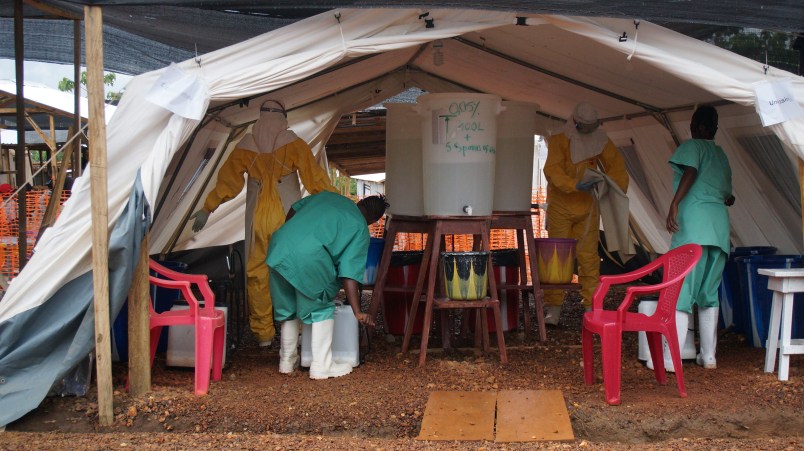The Ebola crisis of 2014 caught the international community and global aid organizations unprepared. As far back as February, there were warnings of catastrophe, with Doctors Without Borders dubbing the response “patchy and slow.”
Some donors have stepped up the plate. The philanthropist Paul Allen has committed at least $100 million to the Ebola fight, with Mark Zuckerberg and Bill and Melinda Gates leading the way.
The U.S. Chamber of Commerce Foundation has tracked pledges of $45.7 million in cash and additional in-kind contributions in support of Ebola relief and recovery efforts. Ikea has been one of the few large corporations to give significantly, pledging 5 million euros ($6.2 million) in September. Aid organizations including the Red Cross, UNICEF, Save the Children and others, have had some success in raising funds, but many of these came from smaller individual donors. Google and Facebook also leveraged their platforms in November to raise funds for Ebola relief. But overall, donations from foundations and corporate giving has been disappointing.
 Dr. Tom Frieden, Director of the CDC, is decontaminated by Doctors Without Borders staff after visiting their Ebola treatment unit. Athalia Christie via Wikimedia Commons, CC BY 2.0.
Dr. Tom Frieden, Director of the CDC, is decontaminated by Doctors Without Borders staff after visiting their Ebola treatment unit. Athalia Christie via Wikimedia Commons, CC BY 2.0.
This week, President Obama pushed for Congress to approve additional support to address the Ebola crisis, saying the “fight is nowhere close to being over.”
The number of reported cases continues to grow in the affected countries in West Africa. And even after this outbreak ends, there will be a massive need to rebuild the healthcare infrastructure across the region. All levels of support are needed to bolster both traditional aid efforts and new ideas on how to tackle this epidemic and to prevent future Ebola outbreaks.
“The chilling reality of Ebola should motivate us to safeguard society and take action to stop this pandemic,” wrote Paul Allen when announcing his pledge in October. “Ebola is not somebody else’s problem. It is ours. The entire global community needs to step up now with resources that match the speed and scale of this growing outbreak.”
We created the #TackleEbola program to give people and organizations a way to support specific needs that have been identified by the groups working on the ground. We have seen strong support but we are still working with our existing partners — as well as organizations that interested in joining the fight – to galvanize greater efforts.
Too many people are still standing on the sidelines to effectively end this crisis. Learn more about how you can join the fight at TackleEbola.org.






